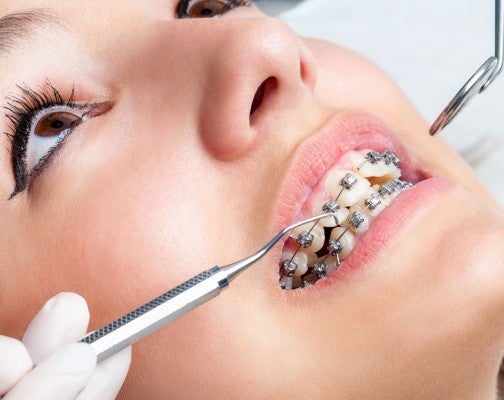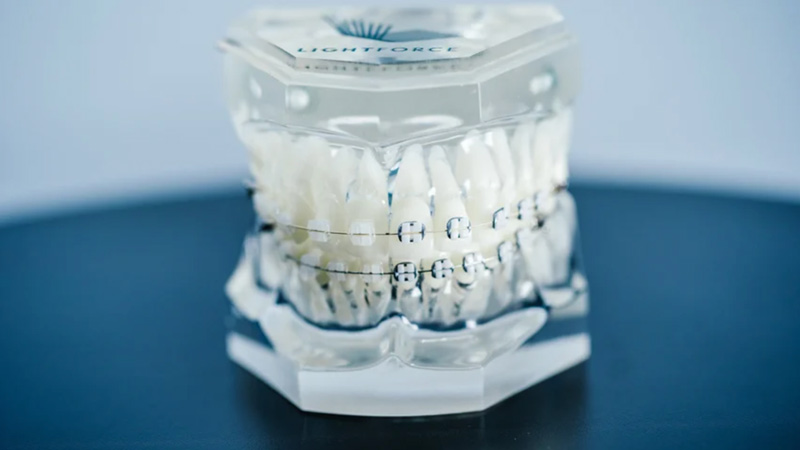Comprehensive Guide to Orthodontics Procedures for Fixing Dental Imbalances
Comprehending the details of each procedure, including their devices, benefits, and potential drawbacks, is essential in making informed decisions about one's orthodontic treatment. As we navigate with the detailed guide to orthodontic treatments for dealing with oral imbalances, the detailed information of each method will unfold, dropping light on the course toward a functional and harmonious oral placement.
Orthodontic Procedures Summary

Normal changes and surveillance are essential parts of orthodontic treatment to make sure progression is on track and to make any kind of essential modifications along the way. By undertaking orthodontic treatments, people can not just attain a straighter grin however likewise enhance their general oral health and function.
Traditional Braces: How They Work
When considering orthodontic therapies for dental imbalances, conventional dental braces attract attention as a tried and true method for correcting teeth placing. Traditional dental braces include brackets, wires, and bands that collaborate to apply continuous pressure on the teeth, gradually moving them into the preferred placement. The brackets are connected to the teeth making use of an unique adhesive, and the wires are threaded via the braces. By changing the stress of the cables, orthodontists can control the instructions and force related to each tooth, directing them into correct placement in time.
As stress is used to the teeth through the braces, the bone bordering the teeth is improved to support the new tooth positions. Patients will require normal changes at the orthodontist's workplace to make sure the dental braces continue to apply the appropriate pressure for effective teeth movement.
Unnoticeable Aligners: Advantages And Disadvantages
These clear, personalized trays are basically undetectable when worn, making them an enticing alternative for people seeking an extra cosmetically pleasing orthodontic therapy. Clients can eliminate the aligners prior to eating or brushing their teeth, reducing the threat of food getting stuck in the appliance and simplifying the cleansing procedure.

Surgical Orthodontic Options
Surgical treatments in orthodontics present viable choices for attending to intricate oral misalignments that may not be successfully solved through conventional orthodontic treatments. While conventional dental braces and undetectable aligners can deal with several orthodontic concerns, certain situations call for medical treatment to accomplish ideal outcomes. Surgical orthodontic choices are normally advised for extreme malocclusions, significant jaw inconsistencies, and cases where the underlying bone structure requires modification to attain correct positioning.
One typical medical orthodontic procedure is orthognathic surgical treatment, which involves rearranging the jaws to remedy useful problems such as problem speaking or eating. This surgery is often carried out in collaboration with an orthodontist that aids straighten the teeth before and after the treatment. Surgical orthodontics may additionally involve treatments to expose influenced teeth, remove excess periodontal tissue, or reshape the jawbone to develop a much more unified face account.
Prior to considering medical orthodontic options, clients go through an extensive assessment to establish the necessity and prospective benefits of such interventions. braces. While surgical procedure might seem overwhelming, it can considerably enhance both the feature and aesthetic appeals of the smile in instances where conventional orthodontic treatments drop short
Retainers and Post-Treatment Treatment

Post-treatment treatment entails complying with the orthodontist's guidelines carefully. This might consist of appropriate dental health practices, participating in follow-up appointments, and wearing the retainers as recommended. Failing to follow post-treatment additional info care directions can result in relapse, where the teeth slowly return in the direction of their initial placements. Regular retainer wear, good dental hygiene, and regular oral check-ups are necessary for maintaining the outcomes attained via orthodontic surgical treatment and making certain the long-term security of the corrected oral placement.
Verdict
In conclusion, orthodontic procedures offer different alternatives for remedying oral misalignments. Surgical orthodontic alternatives are available for extra severe misalignments. Overall, orthodontic procedures can properly enhance oral health and wellness and aesthetic appearance.
As we browse through the detailed overview to orthodontic procedures for correcting oral misalignments, the complex details of each approach will certainly unfold, losing light on the path towards a practical and harmonious oral positioning. - aligners
One of the most common orthodontic treatments is the usage of dental braces, which consist of metal braces and wires that apply gentle stress to gradually move teeth into the wanted placement.When thinking about orthodontic therapies for dental misalignments, typical braces stand out as a tried and true technique for dealing with teeth positioning. Furthermore, invisible aligners may not be appropriate for complicated orthodontic concerns that require more family dental clinic substantial teeth movement, as they are usually advised for light to moderate situations. Retainers are personalized orthodontic tools designed to hold teeth in their fixed settings after the completion of orthodontic treatment.